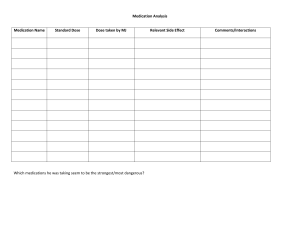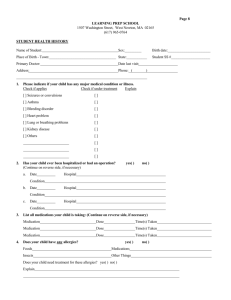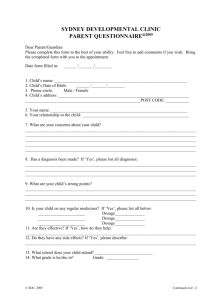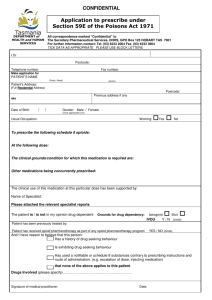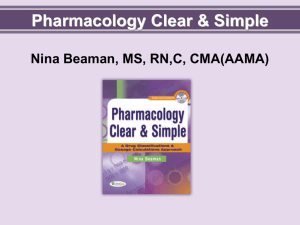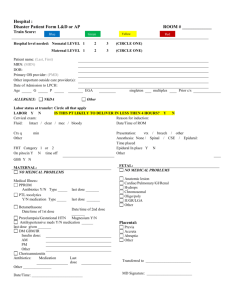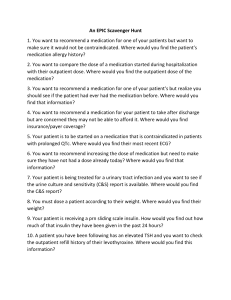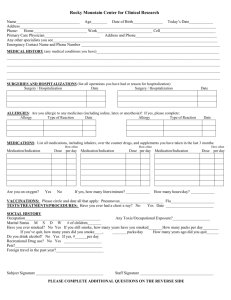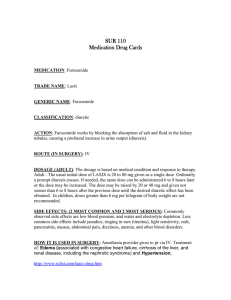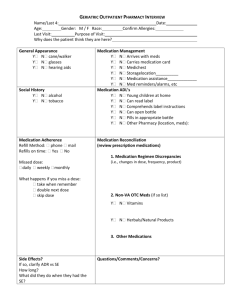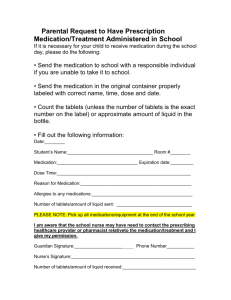ADHD Parent Feedback Form
advertisement
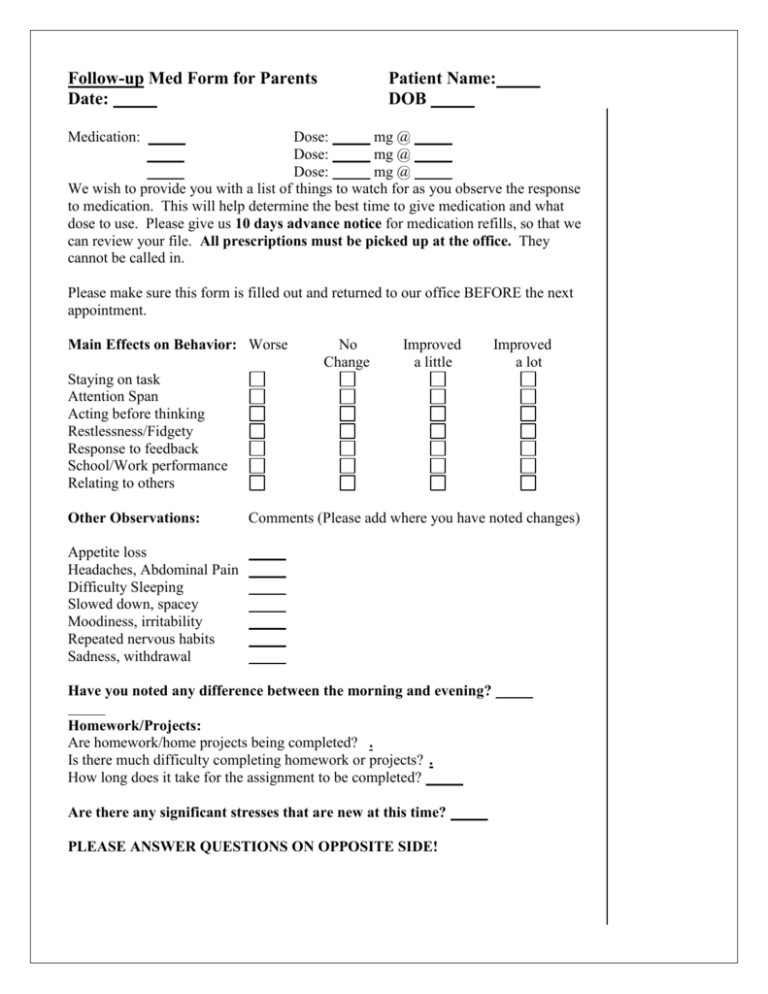
Follow-up Med Form for Parents Date: Patient Name: DOB Medication: Dose: mg @ Dose: mg @ Dose: mg @ We wish to provide you with a list of things to watch for as you observe the response to medication. This will help determine the best time to give medication and what dose to use. Please give us 10 days advance notice for medication refills, so that we can review your file. All prescriptions must be picked up at the office. They cannot be called in. Please make sure this form is filled out and returned to our office BEFORE the next appointment. Main Effects on Behavior: Worse No Change Improved a little Improved a lot Staying on task Attention Span Acting before thinking Restlessness/Fidgety Response to feedback School/Work performance Relating to others Other Observations: Comments (Please add where you have noted changes) Appetite loss Headaches, Abdominal Pain Difficulty Sleeping Slowed down, spacey Moodiness, irritability Repeated nervous habits Sadness, withdrawal Have you noted any difference between the morning and evening? Homework/Projects: Are homework/home projects being completed? . Is there much difficulty completing homework or projects? . How long does it take for the assignment to be completed? Are there any significant stresses that are new at this time? PLEASE ANSWER QUESTIONS ON OPPOSITE SIDE! ADHD Rating Scale IV – Home Version Never 1. Fails to give close attention to details or makes careless mistakes in school work, work, or other activities? 2. Fidgets with hands or feet or squirms in seat? 3. Has difficulty sustaining attention in tasks or play activities? 4. Leaves the seat in class or in other situations in which remaining seated is expected? 5. Does not seem to listen when spoken to directly? 6. Runs about or climbs excessively in situations in which it is inappropriate? 7. Does not follow through on instructions or finish schoolwork, chores, or work? 8. Has difficulty playing or engaging in leisure activities quietly? 9. Has difficulty organizing tasks and activities? Sometimes 10. Seems driven by a motor or always on the go? 11. Avoids, dislikes, or seems reluctant to engage in tasks that require sustained mental effort such as schoolwork or home work? 12. Talks excessively? 13. Loses things necessary for tasks or activities (toys, school assignments, pencils, books, tools)? 14. Blurts out answers before the question is completed? 15. Is easily distracted by things that go on around him? 16. Has difficulty waiting turns? 17. Is forgetful in daily activities? 18. Interrupts or intrudes on others (butt into conversations or games)? Inattention = Combined = Comments: 2 Std Dev = 2 Std Dev = Hyp-Imp = 2 Std Dev = Often Always
